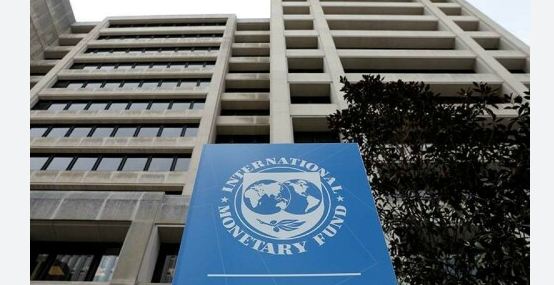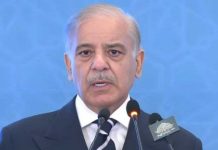ISLAMABAD: The government will resume virtual talks with the International Monetary Fund (IMF) on Monday to finalise revenue and expenditure figures for the next four months, a senior government official told Dawn on Saturday.
The IMF team, led by its Pakistan mission chief Nathan Porter, held talks with finance ministry officials for a couple of days, followed by a last meeting with tax officials on Friday to review the impact of prior actions in terms of revenue generation and their impact on bridging fiscal gaps.
The Federal Board of Revenue (FBR) has been tasked with collecting an additional Rs170bn in revenue to fill the gap, while the remaining amount will be abridged through other measures, such as removing subsidies and increasing gas and electricity prices.
Both sides will also fine-tune the language of a draft Memorandum of Economic and Fiscal Policies (MEFP), generally called the staff-level agreement (SLA), the source said, adding that the text of the agreement would be discussed in detail from Monday onwards.
On Feb 21, Finance Secretary Hamed Yaqoob Sheikh told a parliamentary committee on finance that the MEFP would be finalised within a week. However, it did not happen and reports from the finance ministry suggested that the IMF had asked for four more prior actions.
Govt, lender will discuss draft Memorandum of Economic and Fiscal Policies in detail
As one of the IMF’s conditions to guarantee financial help from bilateral lenders like China, Finance Minister Ishaq Dar on Saturday announced that the State Bank of Pakistan (SBP) had received $500 million from the Industrial and Commercial Bank of China (ICBC).
The amount was the first of the three instalments to be received by Pakistan, as the Chinese bank on Friday approved a rollover of a $1.3bn billion loan for the cash-strapped country.
The loan is expected to shore up SBP’s depleting foreign exchange reserves, which in recent months have dipped to a level that could barely meet three weeks of controlled imports.
The IMF’s estimates show a financing gap of about $7bn for the current fiscal year ending June against Pakistan’s projection of $5bn. There are reports that the country’s foreign exchange reserves would cross the $10bn mark by the end of June.
That official who spoke to Dawn on Saturday hoped Pakistan would be in a better position after receiving the full $1.3bn from the ICBC and another $1.1bn tranche from the IMF soon after signing the SLA.
Besides, funds worth over $3bn from Saudi Arabia and the United Arab Emirates would also be made available soon, he said.
Prime Minister Shehbaz Sharif is also visiting Qatar for two days to garner financial support from Doha. In August last year, the Qatari government announced that it would invest $3bn in Pakistan.
As part of the four prior actions to unlock the IMF agreement, the SBP raised the policy rate by 300 basis points to a historic high of 20pc, let the exchange rate float freely, provide written assurances for external financing gap from friendly countries, and the continuation of a Rs3.39 surcharge on power consumers for the coming years through the finance bill, rather than for four months already announced by the government.
Besides, the government has already discontinued power subsidies for exporters and farmers and imposed Rs170bn worth of tax measures through a mini-budget.
As part of the measures, the government increased the general sales tax from 17pc to 18pc for most goods, and to 25pc for luxury items.
However, a source said the summary on raising the GST to 25pc on the import of nearly 800 items had already been sent to the cabinet for approval but had yet to be approved.
According to the official, discussions on the draft MEFP starting on Monday would be followed by signing a letter of intent and the announcement of the staff-level agreement, which would be placed before the IMF’s executive board for formal approval.
After approval from the board, Pakistan would receive $1.1bn from the Fund.

















